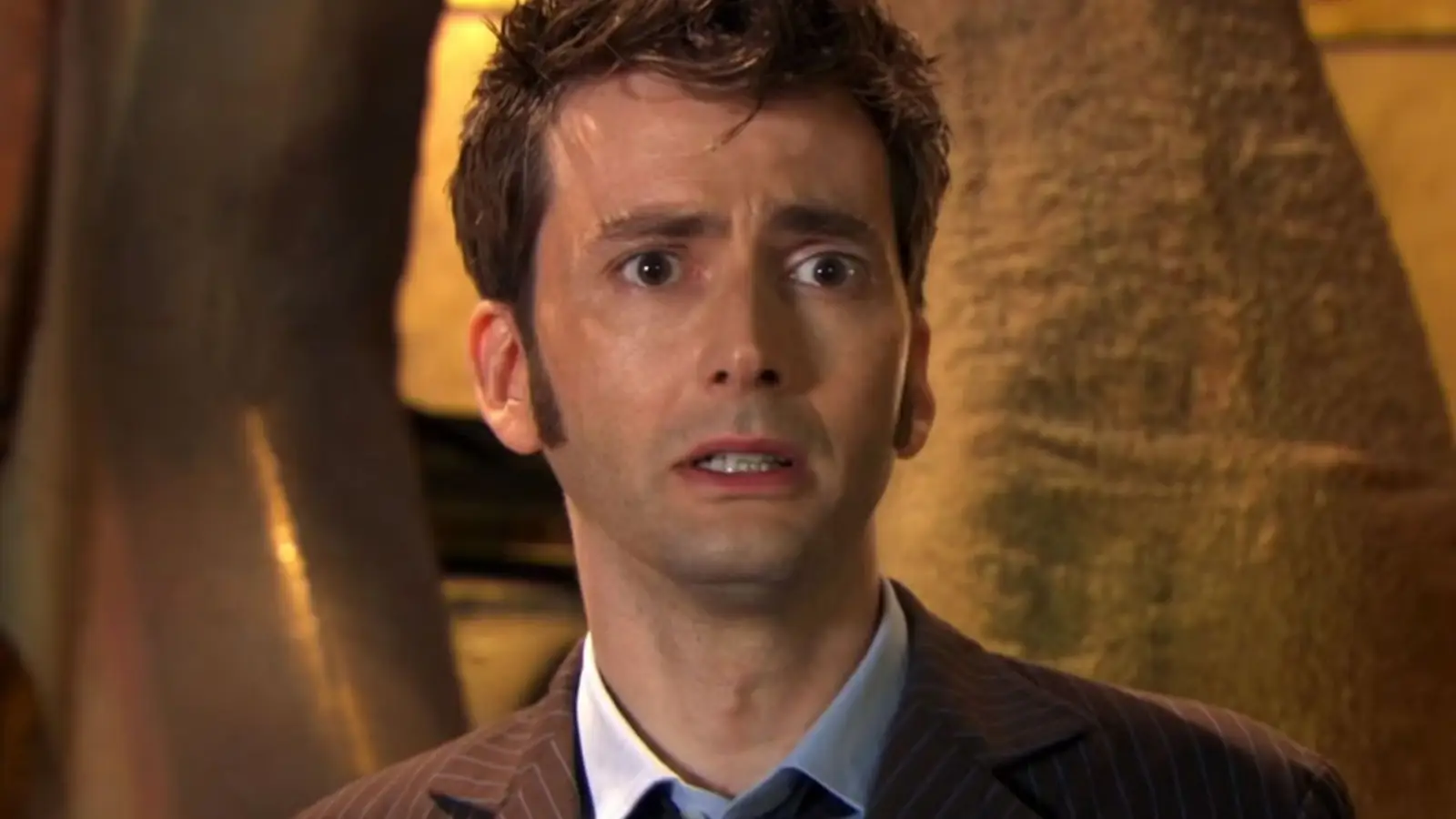Copyright Screen Rant

Truly great sci-fi television imagines the future, but the real challenge is figuring out how to end well. For every brilliant genre series that kicks off strongly, there’s another that collapses under the sheer weight of its own ambition. But when a sci-fi show manages to stick the landing, it transforms years of speculation into something absolutely unforgettable, delivering closure that somehow feels both completely earned and utterly infinite. Not only are these rare TV shows with great pilots and series finales, they are also some of the best sci-fi TV masterpieces—timeless in execution, and endlessly rewatchable. Lost (2004–2010) The End (Season 6, Episode 17) Even 15 years later, the finale of Lost remains one of the most controversial TV finales of all time, but it was also one of the bravest. The episode, "The End," didn't actually set out to decode every single mystery creators Damon Lindelof and Carlton Cuse established. Instead, it focused on providing peace to the characters we had spent six seasons watching suffer, love, and search for purpose. That specific decision, which absolutely infuriated some viewers, ended up liberating others completely. The church reunion paired with Jack Shepherd laying down to rest next to Vincent in the same spot he opened his eyes six years earlier was a beautiful decision to cap the series in its final moments. Person of Interest (2011–2016) return 0 (Season 5, Episode 13) Not many network procedurals truly earn the kind of ending that Person of Interest managed. The "return 0" finale didn't rely on massive fireworks or an apocalyptic event. Instead, the episode gave us an elegant shutdown sequence for a narrative that had consistently focused on themes of purpose, sacrifice, and the poignant, blurry ethics of artificial intelligence. Root, Reese, and Finch's arcs felt inevitable and devastatingly personal, but the Machine's final monologue was what really shifted the perspective of the whole series. It showed the show wasn't just a cyberpunk procedural, but something far more intimate: a love story connecting the creator and the creation, the code and the conscience. Battlestar Galactica (2003–2009) Daybreak (Season 4, Episodes 19, 20, 21) Like Lost, few sci-fi finales are debated as fiercely—or really, as passionately—as they debate Battlestar Galactica’s “Daybreak.” Ronald D. Moore’s reimagined epic wrapped up with a three-part conclusion that truly swung for the fences, No, it wasn’t the smoothest landing, no question, but it was an utterly audacious one. The survivors made the decision to abandon technology after years of intense paranoia and painful moral compromise, choosing to start fresh on a new Earth. This choice felt both utterly shocking, yet completely inevitable, which is exactly why Battlestar Galactica's controversial finale is actually great. When you look at the revelation about Starbuck's mysterious return, the final Cylon-human truce, and that huge jump into prehistory, it all fundamentally reframed the entire series. It’s a story about cycles: cycles of violence, cycles of belief, and cycles of rebirth. Fringe (2008–2013) An Enemy of Fate (Season 5, Episode 13) By the time Fringe hit season five, it had mutated into a classic procedural, a complex multiverse saga, and a harrowing dystopian war story. But "An Enemy of Fate," actually managed to unify all of it. The writers successfully gave a real emotional center to every single bizarre thread, even the stuff dealing with parallel universes and time travel. Walter Bishop’s final sacrifice served as an absolutely perfect endpoint, and the whole series snaps into sharp focus when Peter finally opens the last letter from his father. This was a show obsessed with the true cost of knowledge, and that moment nailed it. On the surface, Fringe's best episodes present a show about monsters or fringe science anymore, but it was a meditation on love, redemption, and legacy. Dark (2017–2020) Paradise (Season 3, Episode 8) Over three seasons, Dark was the ultimate sci-fi thriller with unmatched plot twists, constructed around a genuine labyrinth of tangled timelines, but then “The Paradise” brought untangled the web. Show creators Baran bo Odar and Jantje Friese managed to shift a complex, puzzle-box narrative into a powerful tale centered on love and release. The moment Jonas and Martha make that ultimate sacrifice to undo the original timeline, deliberately erasing their own lives to free everyone else, every unanswered question suddenly snaps into context. The long suffering of every character finally gains a profound meaning, and that haunting, repetitive motif—"the beginning is the end, and the end is the beginning"—is finally broken apart, a satisfying, peaceful end for the characters. 12 Monkeys (2015–2018) The Beginning (Season 4, Episodes 10, 11) Very few narratives actually manage to resolve every paradox without completely shattering their own established internal logic, but 12 Monkeys really is the rare sci-fi show that mastered time travel. Over its four seasons, showrunners Terry Matalas and Travis Fickett transformed what began as a simple virus apocalypse narrative into something far richer. In the end, Cole sacrifices his own existence so that the world can survive. While this mirrors the devastating, bittersweet logic elsewhere shows like Dark, 12 Monkeys delivered a slightly more meaningful twist to that sacrifice. The timeline corrects itself, yet Cole somehow survives, now living quietly in the restored world, watched over by Jennifer Goines. It's tragic in theroy, but transcendent in execution. Arcane (2021–2024) The Dirt Under Your Nails (Season 2, Episode 9) Arcane’s season 2 ending, “The Dirt Under Your Nails,” concludes the entire saga in a cathartic, yet bittersweet affair. With Jinx seemingly sacrificing herself to save Vi, the city manages to survive the fallout, but at a huge emotional cost for the audience. Vi and Caitlyn finally find a peace that feels undeniably fragile, and while Piltover and Zaun begin to teeter on a path toward unity, that alliance is also incredibly delicate. By deliberately avoiding offering neat closure, choosing instead to embrace the complex, difficult aftermath, Arcane successfully wrapped up this saga while paving the way for more League of Legends stories. Doctor Who (2005–2010) The End of Time (Tenth Doctor Specials) There are so few goodbyes in science fiction that genuinely hit with the raw emotional force of David Tennant’s final Doctor Who episode, “The End of Time.” Russell T Davies managed to craft a farewell that was a personal tragedy, both for the Tenth Doctor and for all of us watching. Although some within the Whoniverse community mock that single line—"I don't want to go"—it became iconic because it expertly sliced through the universal fear of change, and the grief associated with every ending. "The End of Time" not only concluded arguably the best Doctor Who era, but few episodes in the sci-fi TV genre have ever surpassed its height. The Expanse (2015–2022) Babylon's Ashes (Season 6, Episode 6) The Expanse ending, “Babylon’s Ashes,” pulled off a galaxy’s worth of story resolution without ever losing the crucial human center at the heart of the Rocinante. Stopping Marco Inaros’ Free Navy was the Roci crew's final mission, and it successfully closed one significant war while still hinting that countless others were waiting out there beyond the Ring. Holden’s choice to form a new Transport Union instead of just seizing power echoed his original sentiments at the start of the journey—Holden never wanted to be a leader, he just wanted to do what's right. That specific move anchored the entire finale in the show’s inherent moral structure. The Expanse also managed to strike a near-perfect balance between delivering closure and maintaining that sense of cosmic curiosity. The Expanse's protomolecule mystery certainly lingered, ending exactly the way all truly great space stories ought to: the vast universe remains unknowable and huge. Star Trek: The Next Generation (1987–1994) All Good Things... (Season 7, Episodes 25, 26) “All Good Things…” is the absolute gold standard for how any great sci-fi series should wrap up. The two-part episode skillfully transformed time travel into a deep emotional reckoning as Captain Picard spiraled across the past, present, and future trying to solve a universe-ending paradox that threatened to erase humanity.



